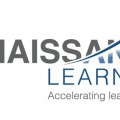 A new bill in the House of Representatives would allocate $750 million toward new equipment, teacher training and competitive grants for K–12 classrooms, all aimed at increasing education technology in U.S. schools to improve college enrollment rates.
A new bill in the House of Representatives would allocate $750 million toward new equipment, teacher training and competitive grants for K–12 classrooms, all aimed at increasing education technology in U.S. schools to improve college enrollment rates.
Rep. George Miller (D-CA) introduced the “Transforming Education Through Technology Act”, (H.R. 521) in the House last month. Miller issued a press release to promote the bill as a way to “speed adoption of innovative digital tools to improve student outcomes, close achievement gaps, boost educator skills and improve efficiency and productivity.”
The legislation will fund professional development activities in technology literacy for teachers, librarians, school administrators and support staff. These activities will help educators familiarize themselves with new education technology and help them understand how to integrate it fully into their classrooms. It also pays for technology upgrades for schools.
State grants to local education agencies would fund live, personalized, on-demand training for educators. The legislation proposes support for a range of new goals, such as creating new learning experiences across a number of school subjects. It aims to encourage new technologies that personalize instruction for students, and educators would be able to gauge student progress through digital and online student assessment tools.
For teachers and administrators, the legislation encourages new training opportunities to help adjust their existing curricula to the new tools, and it promotes equal access for high-risk students or non-native English speakers.
Miller requested the $750 million allocation for the 2014 fiscal year, as well as similar funding for the next four federal budget years. Of that sum, $500 million would be for grants to states’ education agencies and technology training opportunities.
The remaining $250 million would go to the “Technology for Tomorrow Fund,” which allocates competitive grants for partnerships between states, school districts and higher education institutions, nonprofits or private businesses for advanced professional development initiatives.
The bill, which has support from educational groups like the American Association of School Administrators and the National Education Association, is intended to improve overall student achievement as well as increase digital literacy. It also highlights the importance of education technology to help prepare students for college and careers.
[cf]skyword_tracking_tag[/cf]






No Comment